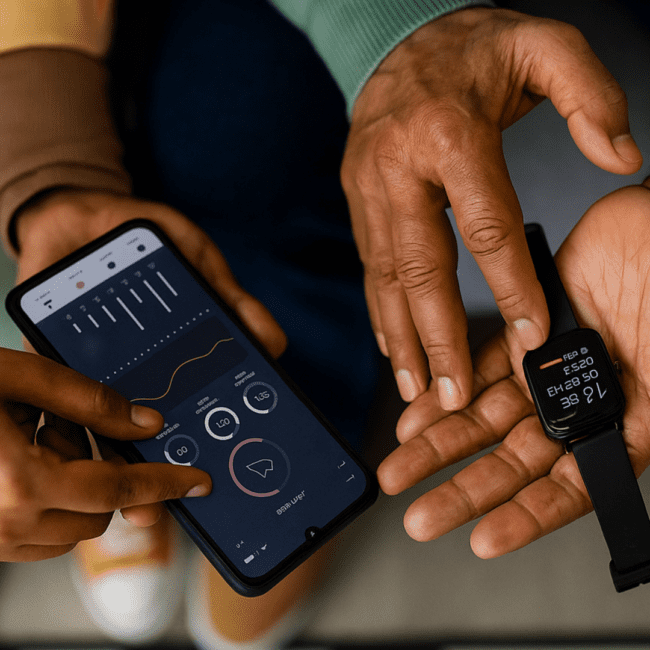Caring for ageing parents comes with its own set of joys and challenges. Whether you’re a family member or a hired caregiver, one of the most reassuring things you can do, for them and yourself, is to ensure that medical support is well-organised. It’s not just about doctor visits; it’s about creating a system that helps everyone feel more secure and supported.
Let’s walk through the key steps to establish a reliable and practical medical support system.
Start with a Simple Health Check-In
Before taking action, take some time to understand your parents’ current health. If they haven’t had a general health check-up in a while, that’s a great place to start. Routine check-ups can help detect small issues before they become bigger problems.
It also helps to keep a basic medical summary handy. A simple document or notebook with details like their health conditions, any past surgeries, allergies, and current medications can go a long way, especially in emergencies.
A gentle, open conversation about how they’re feeling physically and emotionally can also offer important clues. Sometimes, they may not say much unless you ask.
Build the Right Doctor Team
You don’t need to rush and find a dozen specialists, but having a dependable general physician (GP) is essential. This is the doctor who can guide you on when to consult a specialist, be it a cardiologist, orthopaedic expert, or physiotherapist.
If you’re looking for a new doctor, consider one who communicates well, takes time with older patients, and is accessible when you need guidance.
Also, don’t underestimate the value of a long-term relationship with a doctor. The more familiar they are with your parents’ history, the better their advice will be.
Organise Medications Clearly
It’s common for ageing parents to be on multiple medications. Keeping this organised can prevent missed doses or accidental double doses. A weekly pill box is a helpful tool, or you can explore apps that send reminders.
It’s also wise to keep a written list of all medications, what they’re for, when they’re taken, and any side effects to watch out for. Stick this somewhere visible or share it with all caregivers. If your parent is ever confused or hesitant, encourage them to ask questions. Understanding their medication gives them a sense of control.
Prepare for Emergencies Calmly
We don’t like to think about emergencies, but planning brings peace of mind. Create a simple sheet that includes:
- Emergency contact numbers (family, doctor, nearby hospital)
- A copy of their health insurance or senior citizen card
- Any key medical details (blood type, allergies, chronic conditions)
Stick this in a visible spot, on the fridge, near the main door, or by the phone. If you’re not home, someone else should know exactly what to do. It’s a small step that can make a big difference.
Home Equipment: As Needed
Depending on your parents’ condition, some simple medical tools can help monitor health at home. A digital thermometer, blood pressure machine, pulse oximeter, or glucometer can be helpful for regular checks. But always consult a doctor before buying anything.
If mobility is becoming a challenge, consider home modifications or renting support aids like a walker, hospital bed, or wheelchair. Make sure they’re safe, comfortable, and easy to use.
Keep Everyone in the Loop
If caregiving is shared between family members or hired help, it’s important to stay connected. A shared notebook, folder, or WhatsApp group can help keep everyone updated, especially on medication changes or doctor visits.
For hired caregivers, make sure they’re comfortable with basic tasks like monitoring vitals, spotting signs of discomfort, or calling for help. If needed, arrange a short training or walk them through the emergency plan.
Consistency and communication are key. Everyone should know who’s doing what and when.
Make Use of Local and Telehealth Services
Sometimes, support is closer than you think. Many communities now offer home visit services, home physiotherapy, or mobile blood testing. Check what’s available in your city, some clinics even have elder-care packages designed specifically for home-bound seniors.
Teleconsultation is another practical option. For smaller health concerns, you can connect with a doctor through a call or video chat, saving the time and stress of travelling.
In Closing
Medical support isn’t only about treatment. It’s about creating a structure that allows your parent to age with dignity and feel cared for, while giving you the confidence that you’re prepared, no matter what.
Whether you’re a family member juggling work and caregiving, or a hired help doing your best every day, know that even small, thoughtful steps matter.
Take a Small Step Today
Take 10 minutes today to check if your parents’ emergency contact list is up to date. Or, organise their medicines for the week. It doesn’t have to be perfect; just one thoughtful change at a time can make your caregiving journey smoother and more reassuring.






